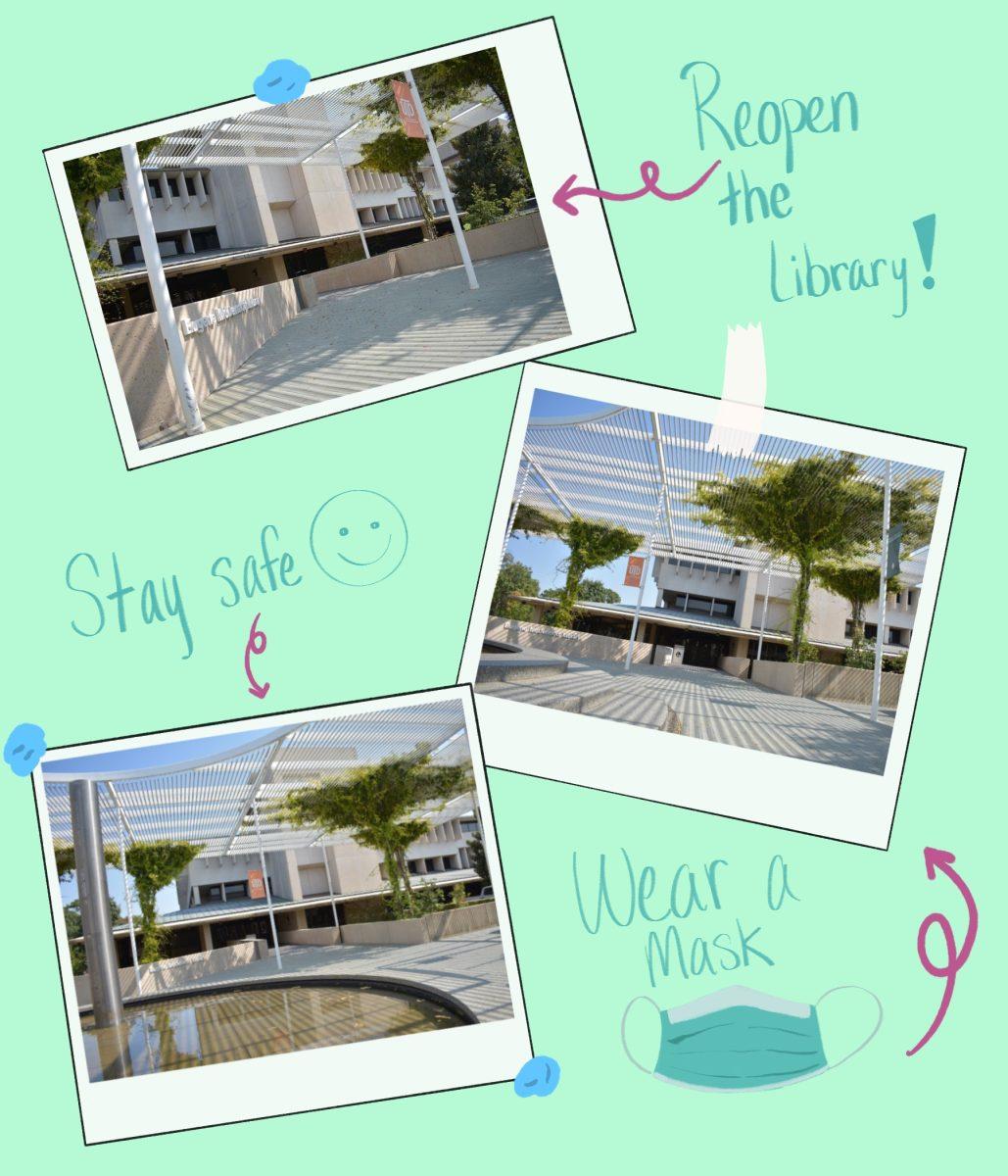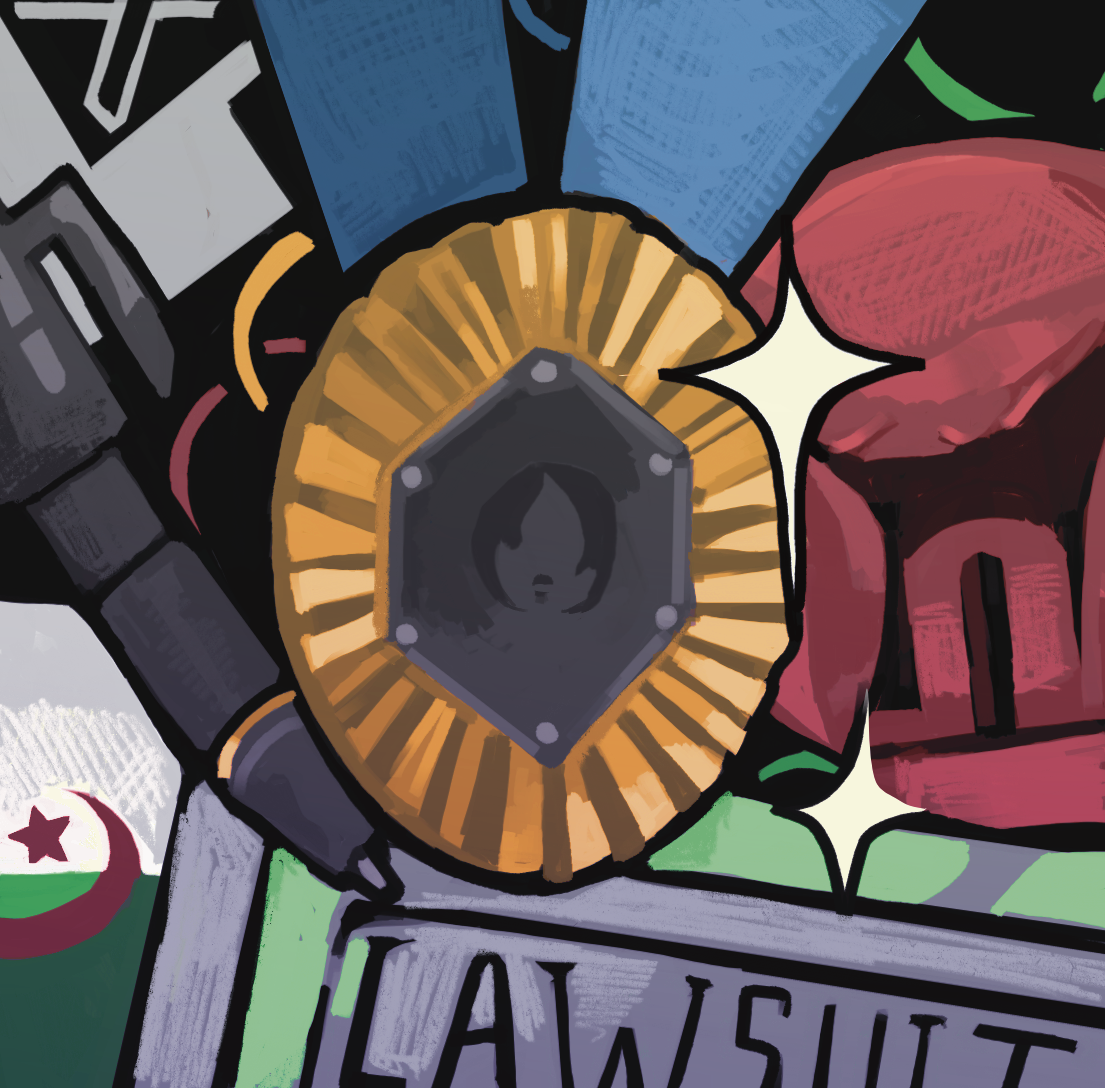UTD is open for business, but the continued closure of the library leaves Comets scratching their heads.
Except for the Eugene McDermott Library, every building on UTD’s campus is open: Comets can study, take classes, eat and work out within the campus’ many buildings. And while the library does have measures in place for contactless book checkout with their curbside delivery model, it is currently inoperable as a study space. Introducing a controlled reopening of the library’s study spaces would be the most consistent course of action for UTD.
Simply put, there is no logical reason why the library must remain closed at this time. There is nothing intrinsic to the library’s study spaces which set them apart as higher risk than any other campus buildings or activities: quite the opposite, in fact. If students can attend the gym together – a process that has been well managed by the university – there is no reason they shouldn’t be allowed to study in the library. Because COVID-19 is a respiratory disease that is transmitted primarily through exhaled water droplets, studying is a substantially lower risk activity than physical exercise; in fact, research suggests that rapid inhalation can triple an individual’s exhaled droplet concentration.
However, it is important to manage any sort of opening in a socially responsible manner. In the midst of a pandemic, where one person’s actions can severely impact the lives of others, reopening the library’s study spaces should not allow students free reign to disregard distancing protocols or otherwise act irresponsibly. This is a theme that is consistent throughout UTD’s reopening – just look to the recreational facilities, where students must book their visits in advance and be screened before entering – and the library should be no different.
So why is the library even closed to begin with? This is due to its administrative housing, said dean of libraries Ellen Safley. Because the library is entirely staff-operated, it does not have the same level of authorization that applies to facilities under faculty governance, which are needed for teaching functions.
“Can we protect people appropriately?” said UTD chief of staff Rafael Martín. “That’s the baseline.”
That simple question, however, necessitates complex solutions. Martín said that the administration is working to design a plan for further campus reopening that meets the student body’s requests while balancing safety concerns, some of which include the low response rates to Daily Health Checks and the presence of unreported COVID-19 cases on campus .
In addition to these concerns, access to the physical resources of a library presents a sizable sanitization challenge. The disinfection process for these materials is more difficult than wiping down a table with a Clorox wipe, and while the library already has a system in place for decontaminating books returned through the curbside program, attempting to contact-trace every single book that a compromised visitor may have touched – or even sneezed on – is nearly impossible.
Thus, until UTD reaches a point where all campus operations have returned to pre-pandemic norms, the library should continue to run operations as they currently are by only reopening the facility’s open-concept study areas and cordoning off the rest of the building.
Perhaps implementing a similar system to UREC’s – with some additional modification – is the best way to balance administration concerns with increased campus accessibility. This plan could begin with opening the library’s main lobby, with one point of entrance and a check-in system to enforce capacity limits, screening students upon arrival and requiring them to pre-register for their time in the library. The system could be linked to students’ Daily Health Check response frequency, such that students who have failed to respond more than twice in the past 14 days cannot access the library.
If that first step is successful, reopening could then expand to the remaining three floors as spaces are adjusted to accommodate distancing and appropriately sequester library operations. While there would obviously be some logistical challenges to sort out before implementing such a system, none of them are insurmountable.
Ultimately, students are responsible for their own safety. A limited reopening allows the university to create the system that everybody wants, where the level of responsibility being granted to students corresponds to the diligence of the students involved. If Comets want to see more opportunities on campus – be those access to study spaces or greater freedom for (controlled) in-person programming – they need to do their part. As Martín observed, the administration sees further reopening as a joint process. The first step needs to be reopening the library; beyond that, Comets need to stay safe, act responsibly and fill out the Daily Health Check.





